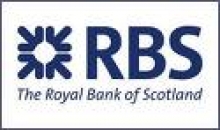Return on equity is increasingly at risk. As the effects of the tightened credit environment spread from the US to the rest of the world, surveyed for this report are finding their ability to deliver improved return on equity curtailed. Beyond the increased cost and reduced availability of finance, a number of factors are exacerbating the problem. Chief among these are dampened business confidence, downward pressure on revenues, adverse exchange rate movements and rising costs.
There is growing pressure on companies to increase return on equity. Just at a time when return on equity is under threat, investors and other stakeholders are intensifying pressure on management to deliver improved performance on this measure. Indeed, six in ten respondents say that they have experienced increased pressure to boost return on equity since the start of the credit crisis. Although executive management is most likely to drive initiatives to improve return on equity, shareholders and the general competitive environment are also exerting a strong influence.
Executives are adopting a cautious approach to balance sheet leverage. Senior executives are finding themselves in a corner: where once they would have turned to balance sheet restructuring to drive return on equity, today, few have an appetite for this. Instead, many executives are cautiously bracing themselves for the possibility of more difficult times ahead by paying down debt and watching cash more closely. Those that have committed themselves to dividend and share buyback programmes to increase return on equity plan to keep these on course; cancellation of such programmes to conserve cash is a last-resort option.
Greater operational efficiency is seen as an important source of improved return on equity. As companies look to the future, they expect to increase their reliance on operational efficiency as a source of enhanced return on equity. This could incorporate a range of initiatives, including greater efficiency of business processes, improved inventory management and a stronger focus on working capital management. Revenue diversification and enhancement, and renewed efforts to cut costs, are also seen as important tactics.
For some executives, it is a time for disciplined acquisitions. Corporations with solid balance sheets and strong cash flows may find that the current environment is providing opportunities to drive return on equity by means of acquisitions. Many senior executives questioned for this survey see softening valuations of acquisition targets. In part, this is due to uncertain growth prospects and diminished competition from private equity operators, whose access to abundant cash resources has been cut back. Yet a disciplined approach to acquisitions remains as critical as ever.







